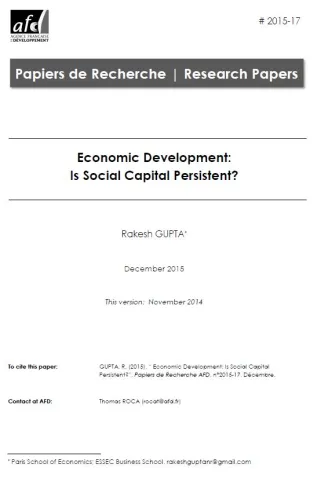Share the page
Economic Development: Is Social Capital Persistent?
Published on

This paper, on the one hand, goes a step closer to demonstrate the causality of social capital on economic performance. On the other hand, we confirm a continued role of social capital effects on economic performance in this paper by using a much larger sample, spanning three decades and increasing the scope of countries. This paper is unique in the sense that it contributes to revisiting questions of economic performance, social capital and institutions with a clearly better and updated dataset from the last 28 years building upon existing empirical evidence. We employ a longitudinal analysis (pooled unbalanced multiple cross-section datasets) with fixed effects in this study. Our sample includes both the World Values Survey and European Values Study dating back to the 1980s. Our results are twofold: Firstly, to confirm that trust has a significant positive effect on growth. And more importantly, they have a significant effect on growth for at least 5 years (for growth at 5, 7 and 10 years following a period of trust measure). Secondly, associational activities - another measure in the overarching definitions of social capital, along with institutions, inequality, and education are consistently significant determinants of trust.
Useful Information
-
Authors
-
Rakesh GUPTA N. R.
-
Edition
-
17
-
Number of pages
-
42
-
ISSN
-
2492-2846
-
Collection
-
Research Papers
